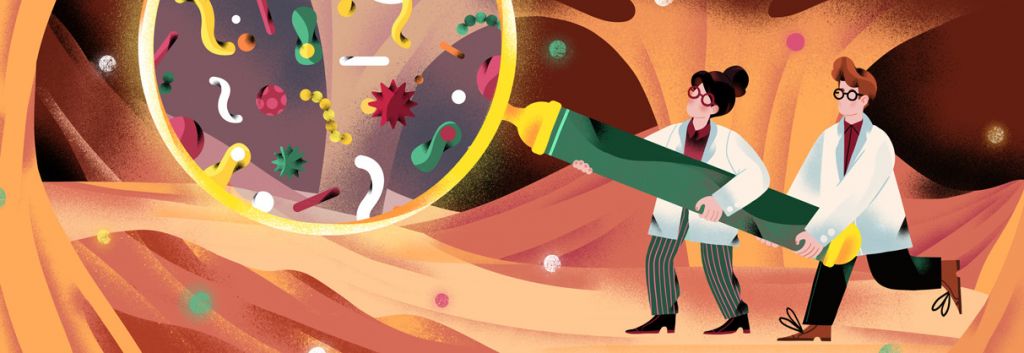Providers of microbiome therapies worldwide have been hit by pandemic restrictions on the harvest of stool samples. Though these measures are now loosening in France, key safety challenges remain for companies using fecal microbiota.
Fecal microbiota transplants — procedures where healthy individuals donate their gut microbes to a patient — have changed how we treat deadly Clostridium difficile infections. Unlike current treatments such as antibiotics, this method is designed to restore the balance of the gut microbiome, and prevent the recurrence of the infection.
Fecal microbiota transplants require a supply of healthy donor stool. This year, stool supplies came under threat as the Covid-19 pandemic arrived.
In March, the French regulator of healthcare products, the ANSM, required that any stool sample used for fecal microbiota therapeutics should be older than February 2020, if possible. The ANSM also heavily restricted the collection of new stool samples.
“This is not something that just happened in France,” said Savita Bernal, Chief Business Officer at the microbiome biotherapeutics company MaaT Pharma. “It’s something that happened across the globe, as soon as they had detected [the virus causing Covid-19] in stool.”
One big concern driving the regulatory changes was that contaminated fecal transplants have caused safety issues in the past. In March this year, four patients were hospitalized after getting infections of harmful Escherichia coli via a fecal microbiota transplant. Without proper precautions, the same could happen with Covid-19 as well.
The stool collection restrictions hit hospitals that give fecal microbiota transplants particularly hard. But MaaT Pharma had wrapped up a stool collection campaign only days before the new regulations were announced, so it wasn’t too badly affected.
Now, the ANSM has relaxed restrictions on the collection of new stool samples. It did this because the current supplies of stool samples are running low, and time is of the essence to get new samples before a potential second wave of Covid-19 this winter.
“The ANSM, I believe, was one of the first in the world to actually allow for stool collection,” Bernal said. “To my knowledge, it is still on hold in the US and in a very large part of Europe.”
To take advantage of the relaxed restrictions, MaaT Pharma is launching a new stool collection campaign. This will support the development of MaaT Pharma’s lead candidate, which is currently at phase II for the treatment of the condition graft-versus-host disease.
Though new stool collection is now greenlit in France, safety challenges remain. For one, donors would normally have to go to hospitals to give stool samples, which risks spreading Covid-19. To address this, MaaT Pharma and its biobanking partner BioFortis have developed a device to allow donors to collect and process stool samples at home. The center can then get the device from the donor’s house.
Another challenge is in the testing of the stool samples for Covid-19. Under the regulations, centers must quarantine products manufactured from stool samples for a time. Additionally, they need to test the donors and stool samples for signs of Covid-19.
The requirement to test stool samples for Covid-19 is a big challenge for most centers. While there is a huge range of kits available for carrying out standard Covid-19 tests in human throat swabs, the same can’t be said for stool sample screens.
“We started to actually develop a … methodology to screen the presence of the virus in the stool, because currently there are absolutely no commercial kits to do that,” explained Bernal. The company has validated its in-house stool Covid-19 test and is awaiting further validation of the test from the ANSM.
According to the company, the extra safety requirements won’t seriously hamper its ongoing programs overall. “It will be a bit more costly and most likely because of the additional tests, but it’s marginal; it’s not critical,” added Bernal.
There are several other European microbiome therapy companies in the complex post-Covid-19 regulatory landscape. These include the UK company Enterobiotix, Caelus Health in the Netherlands, and Ferring Pharmaceuticals in Switzerland. None were available for comment on their regulatory activities at the time of publication. Across the pond, the US microbiome company Seres Therapeutics has released positive phase III results in patients with C. difficile infection.
The recent regulatory changes also carry a silver lining: a stronger dialog between regulators and microbiome therapeutics providers. This could benefit patients in need of fecal microbiota treatments in the long term.
“Companies and hospitals were very involved in that dialog so that we could identify what was needed,” Bernal said. “It’s not just clinical trials. It’s also patients that depend on us for early access programs, and these are very severe patients.”
While French regulations are benefiting from closer communication between stakeholders, the international situation is less clear. According to a scientific commentary article published in March 2020, many nations classify fecal microbiota treatments differently; some as a drug, and others as tissue treatments. This can cause difficulties in coordinating control measures against Covid-19.
“This discrepancy results in a confusing scenario, in which some countries will apply rules for human cells, tissues, or cellular or tissue-based products, and others will not, potentially contributing to the spread of the infection,” wrote the study authors.
Despite the Covid-19 uncertainty, Bernal seemed confident in the biotech ecosystem’s ability to cope going forward.
“I don’t expect any decrease in the regulatory constraints in the next few months,” she said. “But I also think that there has already been quite a lot of dialog going on, and I don’t expect things to get worse either.”
Image from Shutterstock





